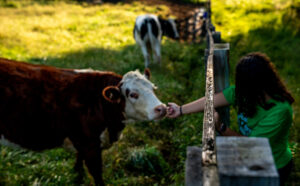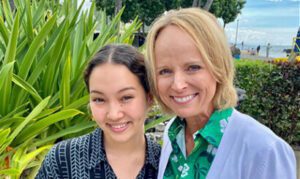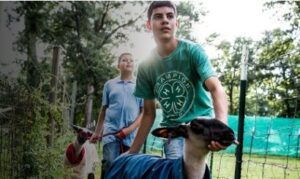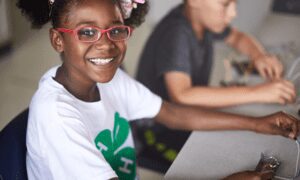Encouraging young people nationwide to reach their full potential is the number one priority for 4‑H. It is critical that today’s youth are introduced to, and encouraged to pursue the career paths that they may be unaware of or feel are unattainable.
Sparking interest in agriculture and science, technology, engineering and mathematics (STEM) is even more important for young women and girls who remain under represented in ag and STEM careers.
I had the pleasure to connect with U.S. Department of Agriculture Deputy Secretary Krysta Harden. As a visionary in agriculture, an advocate for women and girls, and proud 4‑H alumna, she shared her thoughts on the importance of 4‑H hands-on learning programs today, and provided insight on her vision for the next generation of our nation’s leaders.
As America’s largest youth development organization, 4‑H is focused on growing young innovators and preparing them for leadership roles in their careers. From someone who grew up in 4‑H, how did your 4‑H experience impact your life and career?
Krysta Harden (KH): 4‑H opened up many doors for me. Through my involvement in various 4‑H competitions and camps, I was exposed to new experiences – and many life lessons that I have carried with me. In my professional career, I have seen the positive impact 4‑H has on our youth and I truly believe that the organization is developing the next generation of young leaders. I make it a point during every trip I take as USDA’s Deputy Secretary to visit with these young leaders and let them know that we need their skills and talent in order to build a better future.
As a leader in agriculture and agribusiness, what is your vision for the next generation of agriculture and agribusiness leaders?
KH: The time is now to be building the bench for tomorrow’s producers, consumers, and agribusiness leaders. It is crucial that our leadership in the field of agriculture truly reflects the diversity of our nation’s farmers and ranchers.
We need everyone at the table. Everyone’s voice is important and having diverse representation will only lead to better discussions and a stronger tomorrow.
As Deputy, I have also focused a lot of my efforts on women in agriculture because it is a topic near and dear to my heart. Our women farmers and ranchers have a wide variety of interests and skills. At USDA, we started the Women in Agriculture Mentoring Network to connect women with shared interests and goals, personally and professionally. We have over 700 members and we are always looking for more 4‑H’ers! You can join by e-mailing agwomenlead@usda.gov.
USDA is currently working to reach new and beginning farmers. How do you think 4‑H and other agriculture-based youth organizations are helping to support this effort?
KH: The average age of a farmer is 58 years old. We have to start making decisions today to make sure young people will get involved in agriculture, and that’s in all aspects. That’s farming, science, marketing, education, and communication. It’s the entire industry.
I think organizations like 4‑H really do help start a career path for a young person who is thinking about an interest, a degree, or a career in agriculture. 4‑H can show them the opportunities. USDA certainly wants to be there and help bring awareness, and to help provide outreach to young people. We do a lot with colleges, 4‑H clubs, and even space programs. We do a lot of joint research with NASA, helping young people understand the importance of growing and providing astronauts with safe, available food. You often hear people refer to STEM in the news but at USDA, we want to make it STEAM to include agriculture.
In partnership with 4‑H, we want to expose young people to all the different options involved in agriculture. For those who want to stay on the farm or ranch, we want to make sure they have the tools to do that as well.
The push for more women in agriculture and agribusiness is a topic being raised on a global level. What are your thoughts on ways we can encourage young women to pursue a career in such a high demand field?
KH: We must first say, “You can do it if you want to do it.” Girls and young women need to know that there are a vast amount of opportunities in the field. From the farm to the boardroom to the classroom, there are so many possibilities and we must continue to open doors for women. We need their ideas and talents, and USDA stands ready to make sure they receive that message through our mentoring efforts, partners, outreach opportunities, and so much more.
















